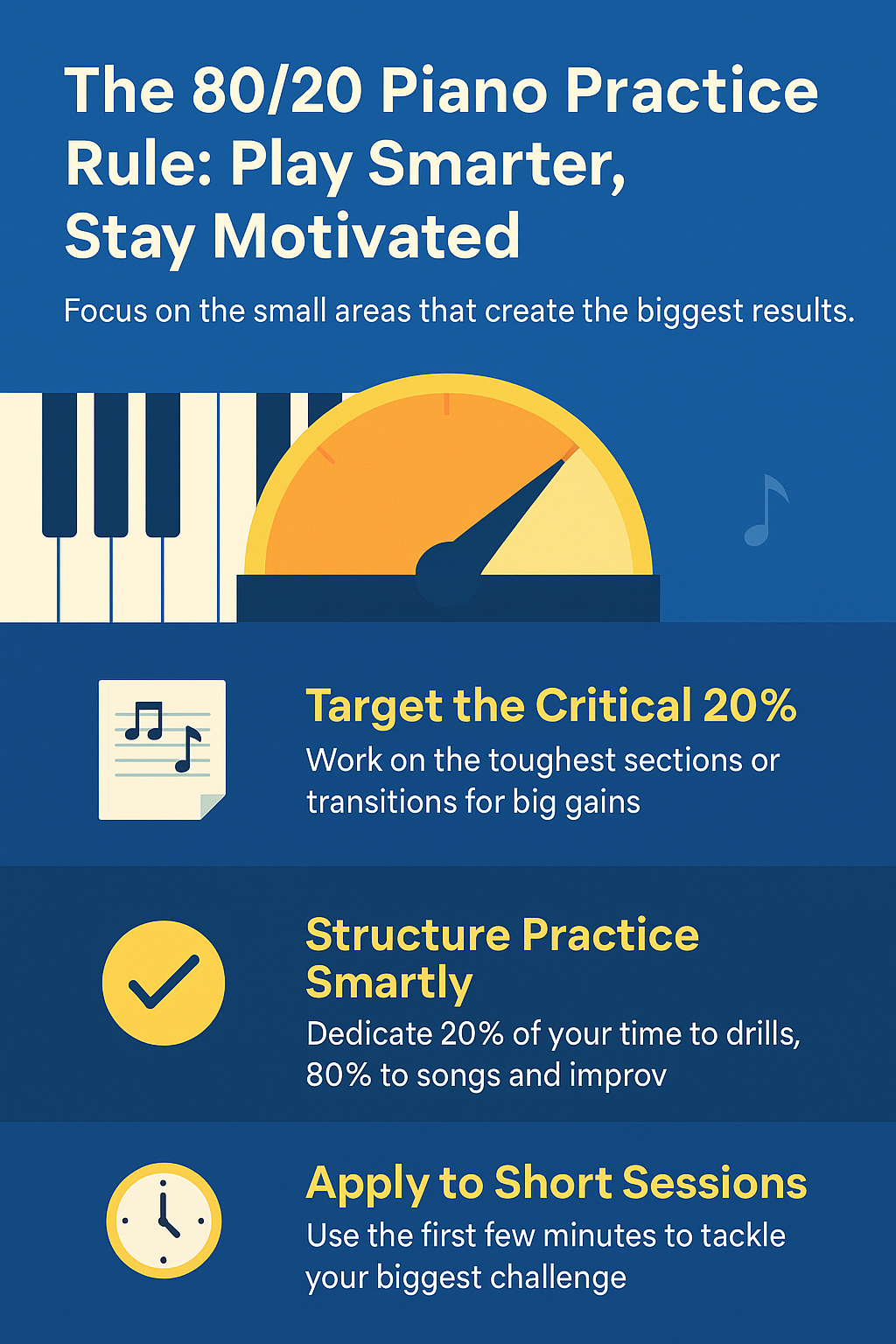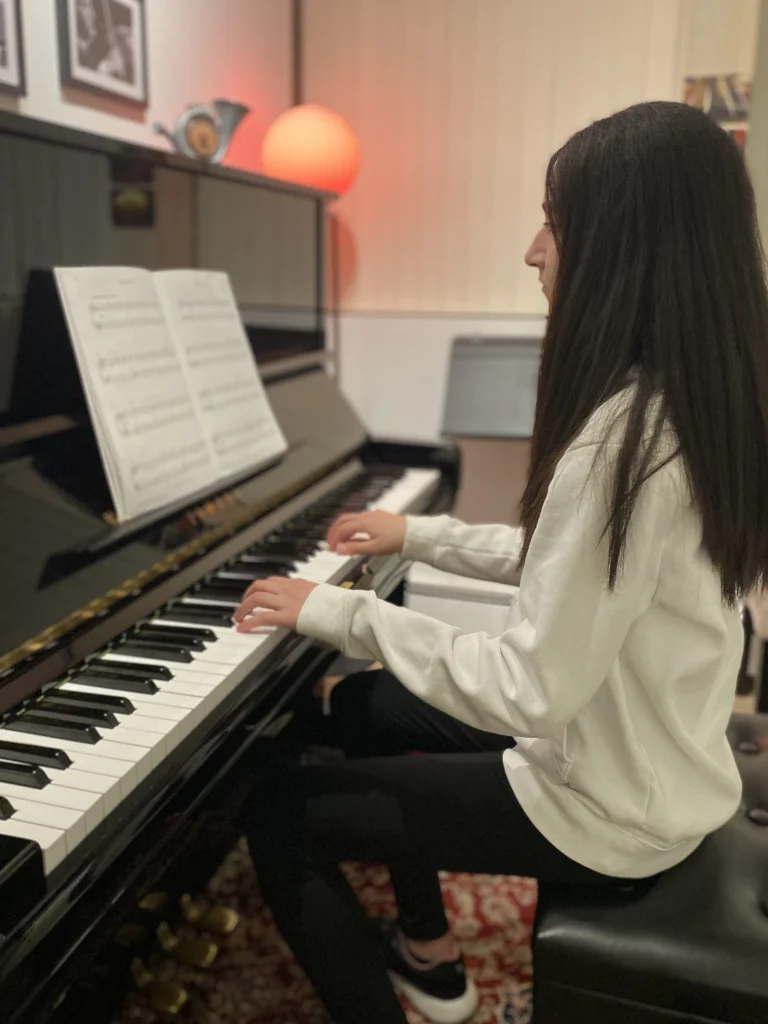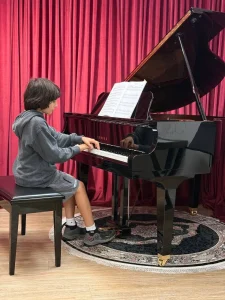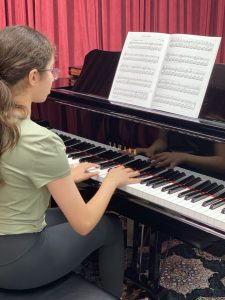Finding the Motivation to Practice Piano: Stay Inspired on Your Musical Journey
Staying motivated through consistent piano practice can be tough—especially during busy weeks or when progress plateaus. With the right approach and focus on piano practice motivation, however, you can maintain steady progress and enjoy the journey. This article provides simple and effective strategies to make practice sessions more productive and inspiring.
Setting Achievable Goals
- Know your “why”: Write down what matters—a piece you want to play or a performance you hope to give—and revisit it often (motivation for learners).
- Use SMART goals: Specific, Measurable, Achievable, Relevant, and Time-bound—for example: “Learn to play X at target tempo by June.”
- Break into stages by level: Beginners set mini-goals like learning one chord or phrase; intermediates aim for cleaner transitions; advanced learners might chart improvisation or compositional targets.
Creating a Practice Routine
- Short, consistent sessions: Even a 1‑minute warm‑up is better than skipping altogether—small habits build discipline.
- Include deliberate practice elements: Focused, goal‑oriented drills backed by feedback help progression.
- Adapt routine by life stage: Kids may practice twice for 10–15 minutes daily; adults often do 3× 20–30 min sessions across the week.
Using Gamification and Rewards
- Sticker or point charts: Especially useful for children—earning stickers or points toward a reward gives positive reinforcement.
- App-based motivation: Interactive apps like Flowkey, Simply Piano, and MuseFlow gamify learning, making it feel more fun than chore.
- Personal challenges: Try composing a phrase, improvising over chords, or learning a genre outside of your comfort zone—turn practice into playful exploration.
Tracking Your Progress
- Reflect after each session: Ask “How do I feel now?” to reinforce the positive effect of playing.
- Keep a practice journal: Record daily time, what you worked on, and how it felt—visualizing progress fuels motivation.
- Showcase achievements: For parents and children, regular “report cards” or mini‑performances help celebrate milestone wins.
Staying Inspired with New Music
- Explore styles beyond your current level: Classical, pop, jazz, video game music—keeping variety prevents boredom.
- Listen or watch live performances: Seeing skilled pianists in action can reignite motivation and spark new goals.
- Free creative play: When stuck on a tough section, take a break and improvise any sound or phrase that feels good—it helps rekindle joy.
Optimizing Your Piano Environment & Support System
- Create a comfortable practice space: Choose a quiet, well-lit area with minimal distractions. Make sure your seating, lighting, and instrument setup feel inviting so practice doesn’t feel like a chore.
- Find your best practice time: Experiment with mornings, afternoons, or evenings to discover when your focus and energy are at their peak.
- Minimize distractions: Turn off notifications, clear clutter, and create a mental “practice zone” that signals to your brain it’s time to focus.
- Seek accountability and community: Working with a teacher provides structured guidance and motivation. Having a practice buddy or joining an online piano group adds encouragement and social connection.
Practical Ways to Apply 80/20 in Piano Practice
The 80/20 rule (Pareto Principle) says that 80% of your progress comes from 20% of your efforts. Here’s how to make it work for motivation:
- Identify the critical 20% in your piece: Usually, it’s the hardest sections, tricky transitions, or frequent mistakes. Focusing 80% of your practice time on these challenging sections gives the biggest return while dedicating a shorter amount of time to practicing.
- Break it down: Break down the difficult sections in your piece, isolate them, and spend time working on one section at a time, rather than playing the piece from the beginning repeatedly.
- Slow down: When learning a new piece, focus on moving slowly but accurately. This minimizes making repeated mistakes.

This approach saves time, reduces overwhelm, and delivers fast wins—keeping your motivation alive.
Well‑structured piano lessons in North Vancouver help keep students motivated.
Frequently Asked Questions (Beginner, Intermediate, Children & Adult perspectives)
Q: I’m a kid and hate practicing scales. How can I stay motivated?
A: Keep sessions short, add fun variations, and reward effort with a sticker chart. Having variety and parent support helps too.
Q: As an adult with little time, how can I make piano practice live?
A: Even a few uninterrupted minutes daily builds discipline. Use an app like MuseFlow or Flowkey for feedback and song-based motivation.
Q: I’m intermediate and stuck on a plateau. What now?
A: Reset with a new challenge—improvisation, composition, or cross-genre learning—and track your progress. Shift the challenge to keep it fresh.
Content Summary
- Setting Achievable Goals: Find your personal reasons. Use SMART structures to break large ambitions into stage‑appropriate, realistic steps.
- Creating a Practice Routine: Prioritize consistency through short, focused sessions tailored to age and level, with deliberate skills practice.
- Using Gamification and Rewards: Engage learners by turning practice into a game—points, stickers, app‑based progress, or creative exploration.
- Tracking Your Progress: Reflect after playing, maintain a journal, and celebrate small achievements to reinforce positive momentum.
- Staying Inspired with New Music: Mix repertoire styles, enjoy performances, and allow creative “play”—maintaining joy and curiosity on the learning path.
- Optimizing Your Piano Environment & Support System: Make your space inviting, choose your best practice time, and seek accountability partners or teachers for motivation.
- Practical Ways to Apply 80/20 in Piano Practice: Focus on the small areas that create big results for smarter, less stressful practice.





